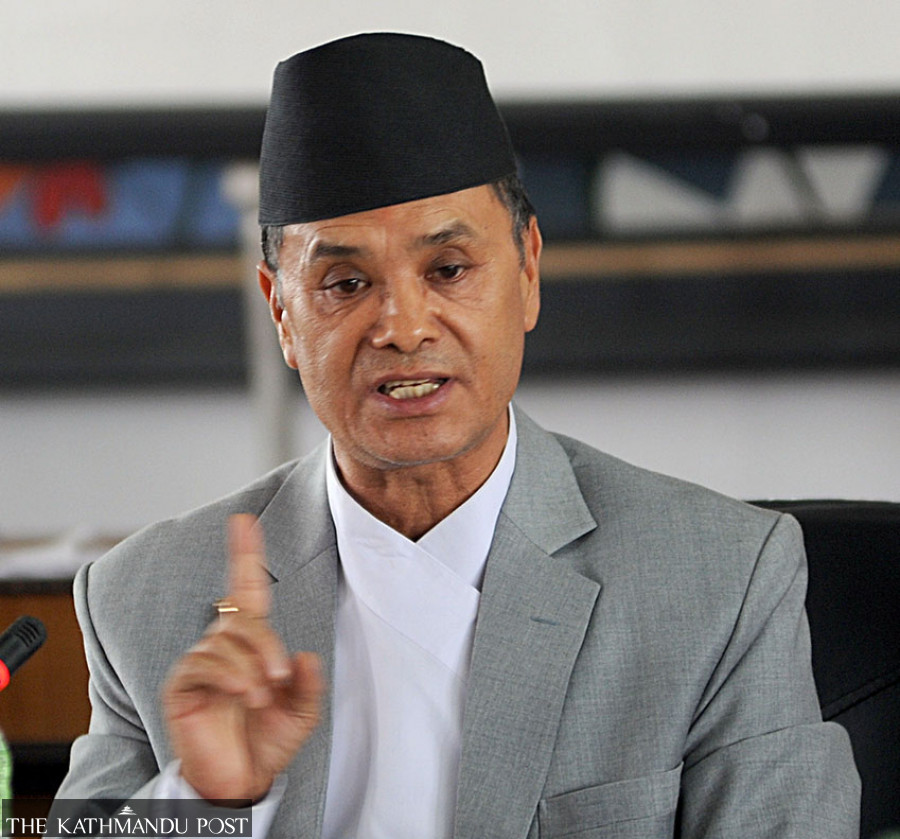Editorial
Exit this way
It's a good idea to get out while the going is good.
After a weeklong hullabaloo at the Supreme Court, Chief Justice Cholendra Shumsher Rana seems to have partially relented to the demands of agitating justices and lawyers. As per reports, he has proposed a “graceful exit” from the apex court after the legal community asked ethical questions about his continuation as the chief justice, claiming that he had brought disgrace to the institution. It is not clear whether his proposal is a last card in a desperate attempt to hold on to the chair, or a genuine attempt to salvage his image while on his way out. As we await what is in his yet undisclosed proposal of a graceful exit, the chief justice has left the public wondering if there is such a thing called a graceful exit after leaving the sacred institution of the judiciary, which is considered the last refuge of democratic ideals, in a pool of controversy.
No matter how the chief justice exits after a controversial spell at the top court, he has ignited a debate on what graceful exit means; and we must be thankful to him for the same. For, in Nepali politics and bureaucracy, the term graceful exit sounds like a misnomer. Trained in a culture of opportunism, Nepali politicians and bureaucrats are not normally known for choosing a graceful exit when they court controversy. Drawn by a lust for power, they fail to foresee a disgraceful exit just around the corner even when the world around them has seen it already. This is what happened in the case of Gajendra Hamal, who took a ministerial berth only to resign in a day. Hardly known at the national level until his controversial appointment as minister of industry, commerce and supplies, Hamal, a relative of the chief justice, failed to judge the mood of the nation when he still had time.
Fascinatingly though, there have been what could be called minor incidents of graceful exit bookending Chief Justice Rana’s wimpy proposal for the same. On Wednesday, Bagmati province Chief Minister Asta Laxmi Shakya resigned ahead of a no-confidence vote against her government when it became clear that her party, CPN-UML, was in a minority position in the Provincial Assembly. On Monday, Province 1 Chief Minister Bhim Acharya stepped down ahead of a no-confidence vote against his government after it became clear that he was in a minority position in the Provincial Assembly.
On Monday itself, Karnali province chief minister Mahendra Bahadur Shahi resigned as per a power-sharing deal with the Nepali Congress. That the chief ministers left without a big hue and cry has come as a relief, for the public is already too tired of seeing politicians clinging to the chair even after they have lost legitimacy. After all, former prime minister KP Sharma Oli has only recently shown the extent to which an individual can go to continue hugging the chair even after his actions have hurt the spirit of democracy, and the public would rather that he left office with whatever grace and legitimacy he had with him.
As ethics and values continue to remain elusive in political and bureaucratic spheres, the idea of a graceful exit may sound like a rarefied pursuit. But that should not be the case. Instead, it is high time we made it the norm rather than the exception.




 9.7°C Kathmandu
9.7°C Kathmandu














